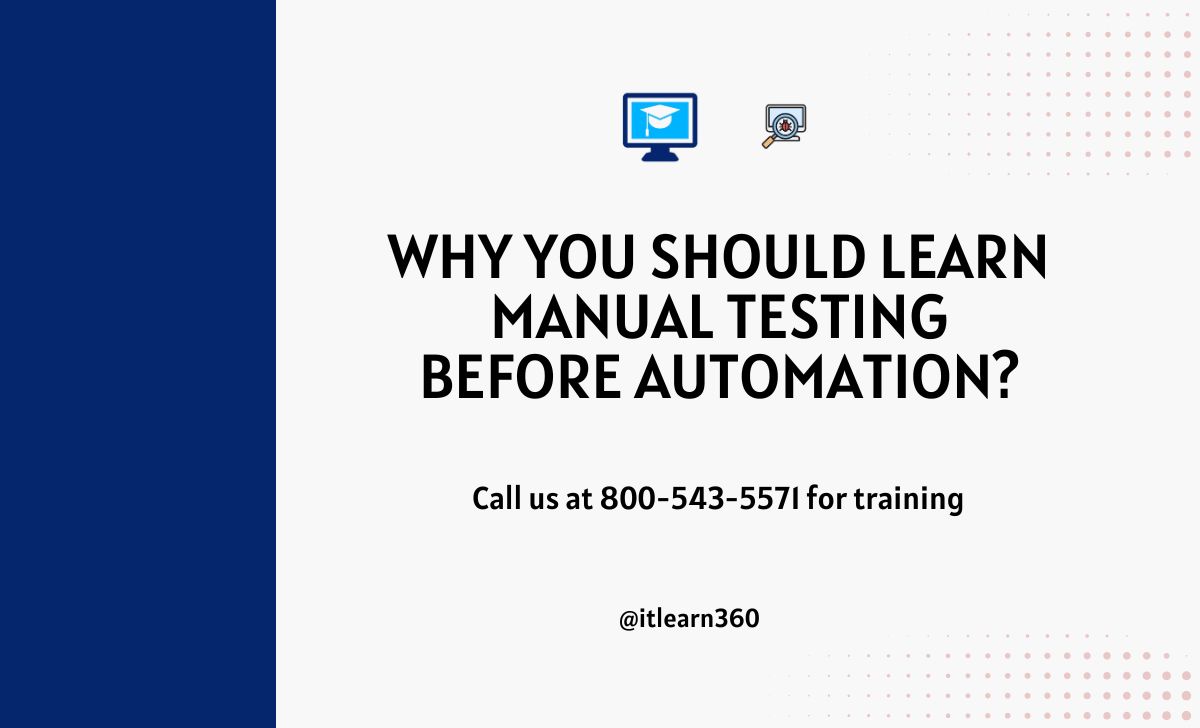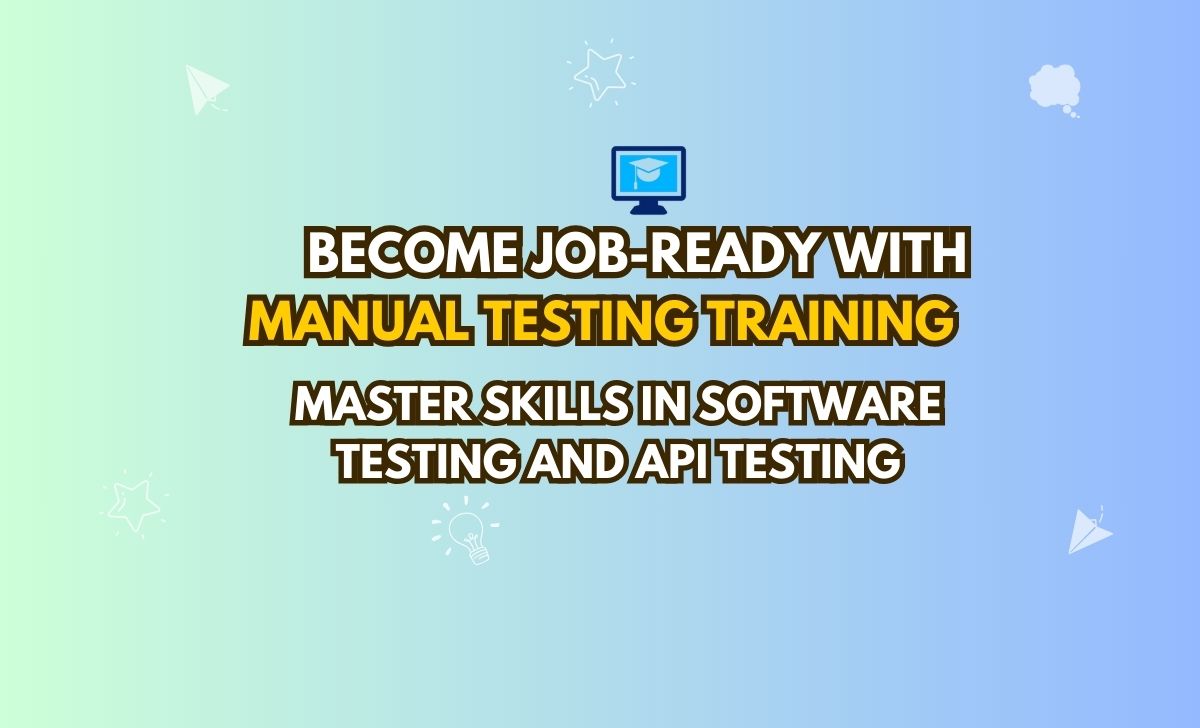Introduction: Testing Is Like Driving a Car
Imagine this scenario: You have never driven a vehicle before, yet you make the decision to start with an electric car on autopilot. That sounds cool, right? But what happens when the autopilot stops working, and you have to take charge? That would be a panic situation because you don’t know how to drive.
This is exactly what happens when testers jump straight into automation without first learning manual testing. Manual testing is important for understanding why tests are done, while automation helps make things faster.
Let’s look at why learning manual testing is the first step in automating.
What is Manual Testing?
Definition: Manual testing involves testing software by hand to find bugs, issues, or gaps. It is similar to physically inspecting every product on a factory line to ensure it meets quality standards.
Fun Example: Think about checking your groceries before you buy them. You’d manually check apples for bruises or eggs for cracks to make sure they were good quality. Manual testing works the same way, except that you check every feature of the software yourself.
Why It’s Important:
- It helps you better understand the user’s perspective.
- This is the first step in figuring out what needs to be automated.
What is Automation Testing?
Definition:
Automation testing uses tools and scripts to run tests and compare them to what was expected. It’s like using a self-checkout machine at the grocery store. It helps, but you still need to set it up and watch over it.
Fun Example:
Self-checkout machines perform fine until the attempt to scan a coupon causes a system jam. Without knowing how the process works manually, you’re stuck resolving problems!
Why It’s Important:
- It’s efficient for repetitive tasks.
- It allows testers to focus on complex scenarios.
Automation testing works well if you know what to test and how to set it up, which you learn by doing manual tests.
Why Manual Testing is the Foundation
It’s like trying to decorate a cake without understanding manual testing before jumping into automation. Manual testing is the only way to know how to bake it.
- Understanding the Basics: You learn how software behaves and what users expect.
- Critical Thinking Skills: Manual testing encourages you to think like a user and spot edge cases.
- Test Case Writing: You develop the ability to create detailed test cases, a skill vital for automation.
- Defect Reporting: Manual testing helps you document issues effectively, a skill transferable to automation.
Some Fun Examples: Why Start with Manual Testing?
- Cooking Before Using a Microwave:
- If you are not experienced in cooking, you will not understand what to do when the microwave overheats your food. Similar to that, manual testing teaches you the basics of testing before you can automate it.
- Driving Before Autopilot: The autopilot in a car is awesome, until you need to take charge in an emergency. It is impossible to know what to do if you don’t learn how to drive.
How Manual Testing Prepares You for Automation
- Familiarity with Testing Concepts: Manual testing helps you learn concepts like test cases, test scenarios, and defect tracking. This is important for making good automation scripts.
- Bridging the Gap: When you’re comfortable with manual testing, automation can be a tool to improve your efforts.
- Better Problem-Solving: Understanding manual processes can help you fix automation problems quickly.
Structured Training: The Key to Mastery
Before using automation, it’s important to learn manual testing through structured training. Here’s what training programs offer:
- Hands-On Practice: Real-world projects that teach you how to test manually.
- Step-by-Step Guidance: From writing test cases to logging defects, training programs simplify every step.
- Transition to Automation: Learn how to move from manual to automation testing with tools like Selenium.
Call-to-Action: Start Your Testing Journey Today!
Manual testing is the starting point for a successful testing career. Whether you are a beginner looking to enter the industry or a professional looking to improve your skills, it is important to master manual testing.
Explore our Manual Testing and Automation Testing training programs to gain real-world experience, learn industry-best practices, and prepare for the challenges of software testing. Join us today and take the first step toward a thriving IT career!
https://www.itlearn360.com/career-paths/master-of-software-testing-roadmap-to-a-successful-tester
https://www.itlearn360.com/career-paths/master-of-manual-testing
https://www.itlearn360.com/career-paths/master-of-automation-testing






